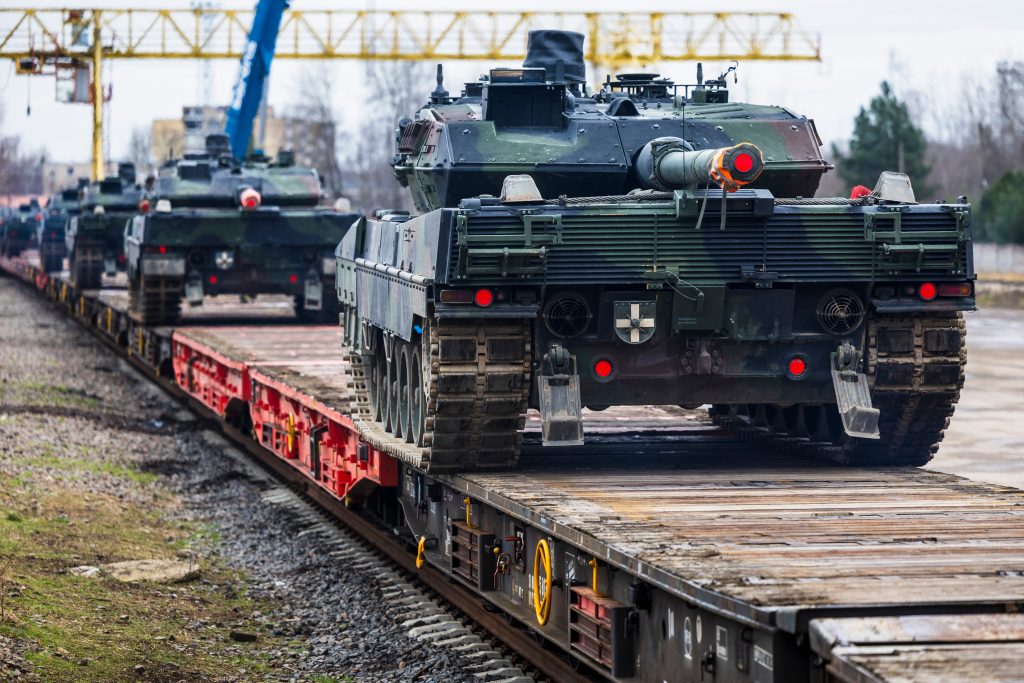We asked Dr HANS CHRISTOPH ATZPODIEN, Managing Director of BDSV, Berlin

HARTMUT BÜHL – European News Journal, Paris
Since the 47th president of the United States declared that he was no longer interested in defending Europe, the European Union has awakened from its slumber and has taken significant steps to relaunch European-owned capabilities. However, the various initiatives launched in the heat of geopolitical urgency do not always run smoothly, as illustrated by the case of the Security Action for Europe (SAFE). SAFE establishes a new financial instrument, which mandates the European Commission to unlock up to €150bn in additional funding by the end of 2030, transferred to Member States in the form of loans to finance the acquisition of significant defence capabilities.) The Regulation was adopted by the Council of the European Union on 25 May 2025, without input from the European Parliament (EP). Subsequently, MEPs expressed anger that Commission President Ursula von der Leyen bypassed the EP by invoking an emergency procedure established in the EU treaties to fast-track the law, which prompted the Legal Affairs Committee to refer the regulation to the EU’s highest court.
![]() European News Journal (ENJ) asked Dr Hans Christoph Atzpodien, the Managing Director of the Federal Association of the German Security and Defence Industry (BDSV) in Berlin, about the urgency to rearm Europe and its capacity in gaining strategic autonomy.
European News Journal (ENJ) asked Dr Hans Christoph Atzpodien, the Managing Director of the Federal Association of the German Security and Defence Industry (BDSV) in Berlin, about the urgency to rearm Europe and its capacity in gaining strategic autonomy.
Mr Atzpodien, the European Commission’s ReArm Europe Plan/Readiness 2030, presented in March 2025, proposes to leverage over €800bn in defence spending through national fiscal flexibility, a new €150bn loan instrument (SAFE) for joint procurement, potential redirection of cohesion funds, and expanded European Investment Bank support. It also aims to mobilise private capital through the savings and investments union. Is Europe finally moving in the right direction?
H-C Atzpodien: It is good to see that Europe has finally taken notice of the wake-up calls, not only from Russia’s ongoing war in Ukraine, but also from President Trump’s demand that 5% of GDP be spent by each of the European NATO countries for defence and defence-related infrastructure. While individual EU countries have to fulfil their commitments to NATO, the EU’s ReArm Europe programme is well suited to support such efforts, especially given the extremely short timelines. With the common goals addressed in the Joint White Paper of High Representative Kallas and Defence Commissioner Kubilius, and backed by the Defence Readiness Omnibus Plan, the EU appears to be on the right track to make Europe’s defence efforts more effective and collaborative.
Let me ask you in more detail about the SAFE funding programme for arms cooperation that the Council has approved recently. The regulation is seen primarily as a significant boost to engage SMEs and offer them solid opportunities for international cooperation. How was this initiative received by the German defence industries that your association represents?
H-C Atzpodien: Germany will not directly benefit from the SAFE programme, as the €150bn at stake will primarily attract countries that can take advantage of the preferential interest conditions offered by it. Nevertheless, SAFE may encourage other EU Member States to start cooperation with a German partner, potentially also SMEs. All this, however, will only evolve in more cooperative products, if and to the extent that European governments and MoDs will be prepared to procure such products. Political determination by EU Member States to foster armament cooperation through their respective decisions will remain key to success.
“Political determination by EU Member States to foster armament cooperation through their respective decisions will remain key to success.”
In March 2025, the president of the German Council on Foreign Relations (DGAP) and former CEO of Airbus, Tom Enders, in an interview with the Frankfurter Allgemeine Zeitung, called for a rapid move away from American defence technology and a decisive change of course. Are European defence industries capable of developing and producing European means of strategic significance in the field of drones and air defence, for example? And what role can German industry fulfill here?
H-C Atzpodien: In the above-mentioned EU White Paper, the shared ambition to reduce procurement from outside the EU, particularly from the US, was made clear. At the same time, the EU set the goal to increase procurement from EU-based production. Yet, in its accord on tariffs with the US, the EU promised to invest a major amount into US defence procurement. I think that both intentions need to be balanced. I am confident that the European defence industry already provides most of the technologies needed to equip our armed forces. Nevertheless, there are – and will continue to be – certain areas, in which cooperation with US manufacturers, and related procurement, makes a lot of sense for reasons of speed and technology.
 Dr Hans Christoph Atzpodien is the Managing Director of the Federal Association of the German Security and Defence Industry (BDSV) in Berlin since 2017.
Dr Hans Christoph Atzpodien is the Managing Director of the Federal Association of the German Security and Defence Industry (BDSV) in Berlin since 2017.
© BDSV




